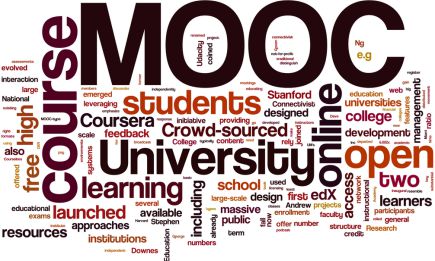Teachers learn from MOOCs

“We explored 68 certificate-granting courses, 1.7 million participants, 10 million participant-hours, and 1.1 billion participant-logged events,” says Andrew Ho, a professor at the Harvard Graduate School of Education, says. In the latest report a group of researchers delved into the demographics of MOOC learners, analyzed participant intent, and looked at patterns that recurring MOOC-participants, tend to pursue.
The teacher taught
What stands out is that many participants of MOOCs tend to be teachers themselves. “Among the one-fifth of participants who responded to survey questions about their professional experience as teachers or instructors, 39% identified as a past or present teacher, and 21% of these teachers reported teaching in the topic area of the course in which they were participating,” the report says.
According to Isaac Chang, professor of electrical engineering and computer science and senior associate dean of digital learning at MIT and leader of the group of researchers, “this finding forces us to broaden our conceptions of who MOOCs serve and how they might make a difference in improving learning.”
One of the main criticisms about MOOCs is that while the numbers of applicants is sometimes huges, only a small percentage of those participants ends up finishing a course. The report by MIT and Harvard finds that “certification rates are high among those who pay $25-$250 to “ID-verify” their certificates.” People tend to achieve better when something is at stake, so it suggests.
Not just opening doors
MIT and Harvard both have spoken out their ambition to offer high level education also to those who have limited access to higher education. “Releasing open online content is only one step toward fulfilling that promise. The demographic counts and distributions that we offer here can inform goal-setting and offer a baseline for progress.”
“These free, open courses are phenomenal opportunities for millions of learners,” Andrew Ho emphasizes, “but equity cannot be increased just by opening doors. We hope that our data help teachers and institutions to think about their intended audiences.”
Read the full paper here
Meest Gelezen
Wederom intimidatie van journalisten door universiteit, nu in Delft
‘Burgerschapsonderwijs moet ook verplicht worden in hbo en wo’
Raad van State: laat taaltoets nog niet gelden voor hbo-opleidingen
Vrouwen houden universiteit draaiende, maar krijgen daarvoor geen waardering
Extra geld voor bètafaculteiten is daar nooit terechtgekomen

